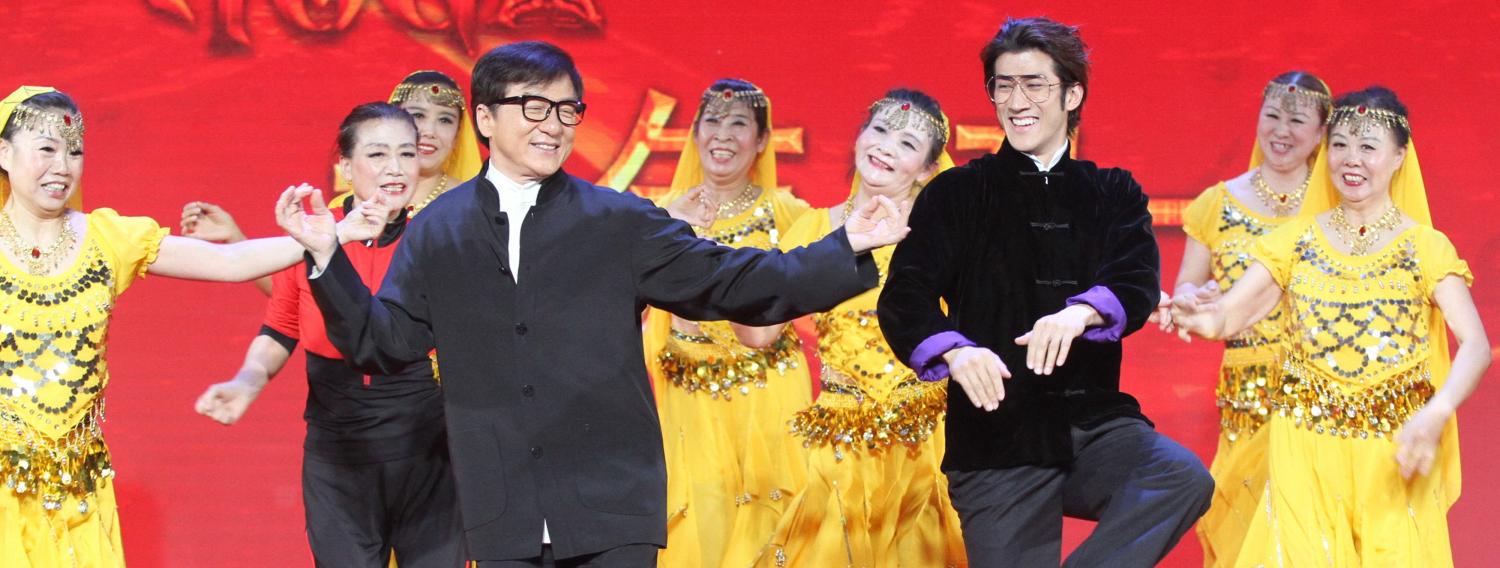Despite China's best efforts to make its mark on the global film industry, the lukewarm response to the recent Chinese-Indian joint venture film Kung-Fu Yoga suggests that global domination by the Chinese film industry is still some way off. This has further implications on China's quest for wider soft power.
Kung-Fu Yoga was the result of a co-production agreement bringing together China and India's film industries, signed between China and India during Chinese President Xi Jinping's visit in 2014. It is the second of three films coming from the agreement. The film was originally intended to be a joint venture between Chinese production companies Shinework Media and Taihe Entertainment and Viacom 18, the Indian branch of the American production company Viacom Inc. However, in late 2015, Viacom 18 pulled out of the project, making it exclusively a Chinese production.
Kung-Fu Yoga stars Jackie Chan and is directed by long-time Chan collaborator Stanley Tong. The film centres on Chan's character, a Chinese archaeologist, who teams up with an Indian counterpart to find lost treasure in Tibet. The film is pitched as an Indiana Jones-esque Sino-Indian cross-cultural romp. But while it has been well received in China, Indian film critics have widely panned the movie, with reviews calling it a 'mangled mess' and a 'snoozefest masquerading as a film'.
Though the objective of the Sino-Indian co-production agreement was to bring together the two country's film industries (and by extension lead to closer ties between the erstwhile rivals), the greatest criticism of Kung-Fu Yoga is that it 'reaffirms [Chinese] stereotypes about India' without dispelling many of the mistaken beliefs about India that still exist in China. These criticisms were mirrored in Indian audiences' response to the film, with paltry ticket sales (there were reports of only 14 viewers at an opening screening in Mumbai). Chinese audiences weren't put off by the cultural misappropriations, with the film topping the film charts in the week to 5 February, grossing over $US140 million.
Badged as an example of Sino-Indian film cooperation, Kung-Fu Yoga can also be viewed as part of China's wider soft power strategy. Under the stewardship of Xi, China has become a major player in every international field, but its soft power strategy is still in a nascent stage.
China has thus become increasingly active in the film industry to wrest back control of the narrative being told about it. Wang Jianlin, China's richest man, is driving this push, with his investment in a number of Hollywood production houses including Legendary Entertainment and Dick Clark Studios. Jack Ma, China's second-richest man and founder of internet giant Alibaba, has also expressed an interest in furthering his investment in Hollywood, and in 2015 purchased a stake in Steven Spielberg's firm.
Up to now, China has been content to further its stakes in the film industry via co-productions and partnering with international film companies. Yet as China's place in the world grows, so too will its film industry become more proactive. For example, when talking about the burgeoning Sino-US film relationship, Wang observed that both China and the US would benefit from more joint productions, but warned Hollywood would need to 'cater to Chinese tastes'.
But is this a fundamental flaw of China's quest for global film domination? Are Chinese tastes able to transcend all cultural boundaries? As Kung-Fu Yoga shows, the tastes of Chinese and Indian audiences can be radically different. This is illustrative of the wider challenges facing China's soft power strategy. The basic principle of soft power is that it spreads organically, coming from the culture itself and not from a government-issued directive; as Joseph Nye states, soft power is generally more successful when it is not a 'dictated program'. However, China with its various ministries of culture and propaganda appears to take a more controlled, top-down approach, limiting the spontaneous, bottom-up cultural influence that has been so effective for other countries (notably the US).
The success of Kung-Fu Yoga in China may be used by both Chinese and Indian governments as evidence of the co-production agreement succeeding. However, the muted response to the film by Indian viewers and the limited impact the film is having in other international markets indicates that Chinese films made with Chinese audiences in mind may struggle to garner success outside of China.
The limited response to Kung-Fu Yoga indicates that China still has some way to go before it reaches its goal of being a global film influencer and having effective and organic soft power. Telling authentically Chinese stories (instead of perpetuating hackneyed cultural clichés) is more likely to resonate with global audiences, ensuring both box office success and a genuine interest in Chinese culture. A freer and bottom-up approach to both film-making and soft-power propagation will allow China's cultural influence to rival the staying power of established soft-power countries.

